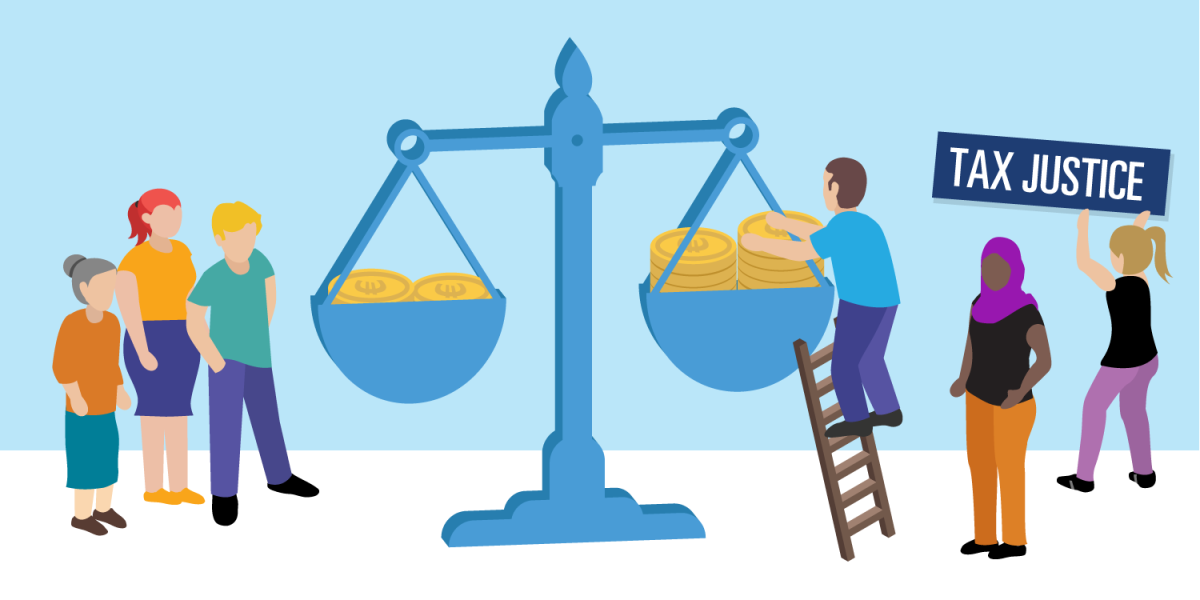By Iain Byrne
“The world cannot afford further delays in addressing this urgent issue” — Tijjani Muhammad-Bande, Nigeria’s permanent representative to the UN
Just over two years ago I raised the question whether the 2021 Organisation for Economic Co-operation and Development (OECD) tax deal was truly a watershed moment for tax justice and human rights. Given the estimated total global loss of $500 billion annually from tax abuse that could be used to better meet states’ human rights obligations, including with respect to the SDGs and climate action, the need to effectively address this gap is urgent.
In the intervening two years there has been a flurry of activity but this time not under the auspices of the OECD which has hitherto controlled this process, but instead at the United Nations.
Before the ink was dry on the OECD deal concerns were already being raised about both the content of the deal and how it had been arrived at. Countries in the global south felt excluded from the process and pressured into signing up to a deal which appeared to favour wealthier countries. This culminated in the Africa Group of states tabling a resolution at the UN last year calling for a genuine UN sponsored international tax cooperation process which would be fair and inclusive. Despite some noises off from several OECD governments expressing pre-voting opposition, the resolution was adopted by consensus at the General Assembly on 30th December 2022.
The resolution called amongst other things for the UN Secretary General to prepare a report to examine various options for reform. After an extensive consultation process, including a call for submissions to which Amnesty International contributed, the report published in 26 July 2023 presented three main options. The first two involved the drafting and negotiating of either a standard multilateral Convention or a Framework Convention respectively. This would be done through the establishment of a Member State-led, intergovernmental ad hoc advisory expert group which would prepare draft terms of reference for the negotiation. The third option merely called for the group to carry out preparatory work for a conference to continue discussions as part of a non-binding multilateral agenda but without any concrete ultimate goal such as a treaty.
In presenting the report the Secretary General noted that it “comes amidst increasingly urgent concern that the international financial architecture, and with it the international tax system, have not sufficiently supported post-pandemic economic recovery, the financing of the SDGs and climate action [and]…we must not miss this opportunity to advance meaningful progress on this front.”
In response to the report the Africa Group again picked up the baton with Nigeria tabling a resolution on their behalf on 11th October focusing on Option 2 – a Framework Convention. In the lead up to the debate and vote the resolution received strong support from civil society across the globe. These included leading academics such as Professors Jayati Ghosh:
“The world is undergoing multiple and simultaneous crisis and uncertainties. The advanced economies cannot afford to deny developing countries the right to increase their revenues by fairly taxing the richest and corporations operating in their territories. The UN is the place to deliver a binding tax convention and to secure a level playing field for all countries”.
and Joseph Stiglitz:
“The international community needs to deliver effective solutions. A decade-long negotiation process at the OECD has proven insufficient, and the shift to the UN is a clarion call for a broader approach that is essential to achieve an effective outcome this time.”
Although the Africa Group were hoping that the resolution could again be adopted by consensus it quickly became clear that this was not going to happen. In breach of the protocol on maintaining silence before the vote some OECD members publicly expressed their opposition in advance to a UN Convention on the basis that it would duplicate the OECD deal. Of course, in so doing they failed to acknowledge their real motives in not disrupting the status quo whilst also staying silent on the flaws of the OECD deal.
On 22nd November 2023 the UN General Assembly Second Committee debated the resolution. However, as predicted, unlike the previous year consensus could not be achieved and a vote was called. The United Kingdom, on behalf of its allies, attempted a spoiler by tabling an amendment which removed any reference to a Convention leaving only the vague framework process of option 3. However, this was defeated by 107 to 55 votes with 16 abstentions.
The subsequent vote on the main resolution saw the yes vote increase to 125 and the no vote fall to 48 with 9 abstentions. An analysis of the result provides some interesting insights. Whilst the Africa Group and indeed the whole G77 bloc stayed united the OECD bloc saw seven members out of 38 either supporting the resolution (Chile and Colombia who were expected to vote against) or abstaining (Costa Rica, Iceland, Mexico, Norway and Turkiye). States such as Argentina and Singapore, which had supported the UK amendment, ended up voting for the main resolution seemingly as a sign of good faith to continue engaging rather than just trying to block. So remaining opponents constituted the EU and some other European states including the UK plus other wealthier nations including Australia, Canada, Israel, New Zealand and the United States.
The resolution begins by noting the corrosive effect that aggressive tax avoidance and tax evasion have on trust, the social compact, financial integrity, the rule of law and sustainable development, affecting the poorest and most vulnerable. By contrast the resolution highlights some of the benefits that greater and genuine cooperation could bring. These include the generation of financing for development, recovering and returning stolen assets, promoting financial integrity for sustainable development and improving public institutions.
It then goes on to call for a two-step process to negotiate a UN Framework Convention on International Tax Cooperation. Firstly, an open-ended ad hoc intergovernmental committee will be set up to agree terms of reference (ToRs) for negotiating such a Convention to be finalised by autumn 2024 for the next annual round of UN meetings. In the second stage a treaty text will be negotiated in line with the ToRs.
Other welcome aspects include calls for (a) any UN process to take into account the needs, priorities and capacities of all countries, in particular developing countries and countries in special situations and (b) civil society participation in the process as a means of further promoting transparency and inclusivity. The next immediate step will be to approve the budget for the process in December 2023.
One disappointing aspect remains the lack of any explicit reference to human rights whether in respect to the role of tax in providing the necessary resources for states to meet their legal obligations or ensuring that those obligations both guide and inform the negotiations. However, it is hoped that this could be remedied during the drafting of the actual treaty text.
Nevertheless, this was truly an historic moment. All states now need to ensure that the process stays on track to deliver true global tax justice for rights holders. There can be no equitable and transformative global tax reform if all countries are not able to participate and to represent their issues in a fair and inclusive process.
Iain Byrne is an international human rights lawyer specialising in economic and social rights. Since 2011 he has worked at the International Secretariat of Amnesty International as both a Law and Policy Advisor and Researcher in the Economic and Social Justice (ESJ) team as well as a manager of a number of different thematic teams. He currently co-leads the organisation’s tax justice work. He is a Special Advisor on Strategic Litigation for the organisation and has been involved in litigation in both domestic fora and before international and regional bodies. Prior to Amnesty he was a Senior Lawyer and Legal Practice Director (ag.) with INTERIGHTS 2001-2011. He is a Fellow of the Human Rights Centre, University of Essex and is writing in a personal capacity.

